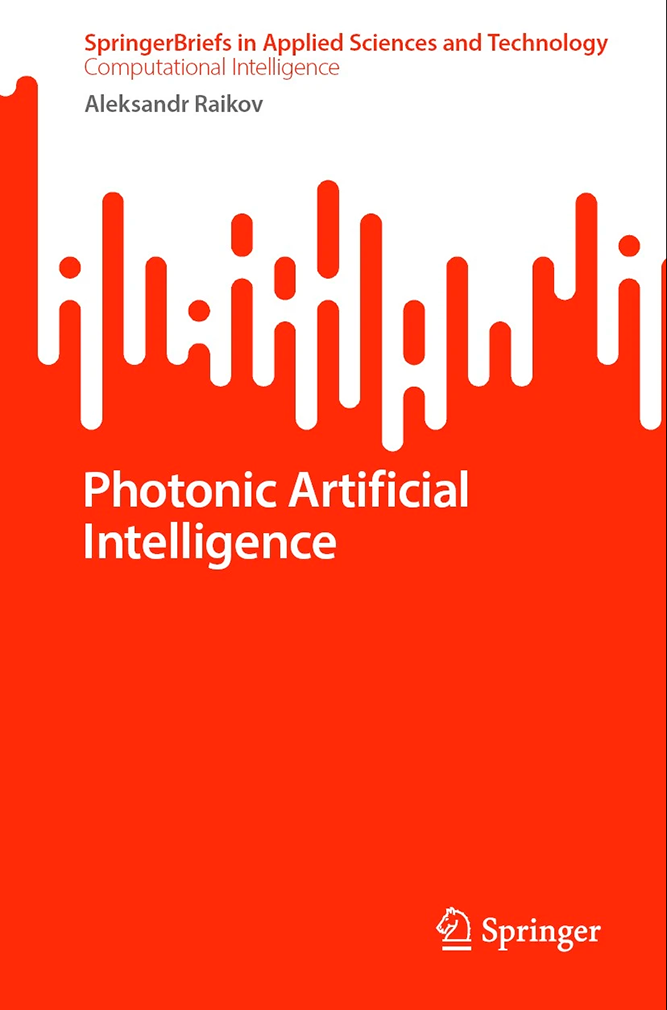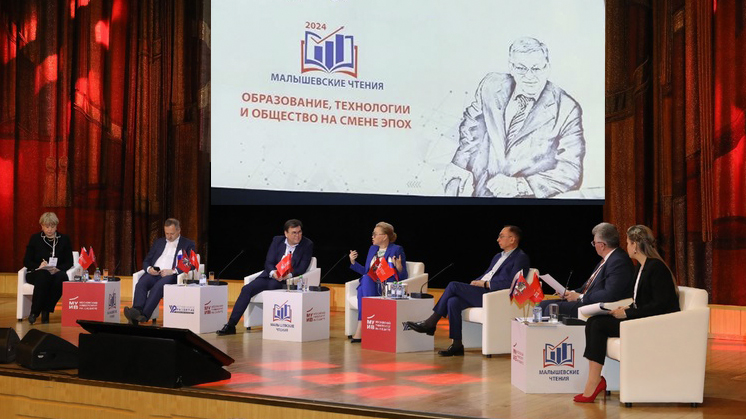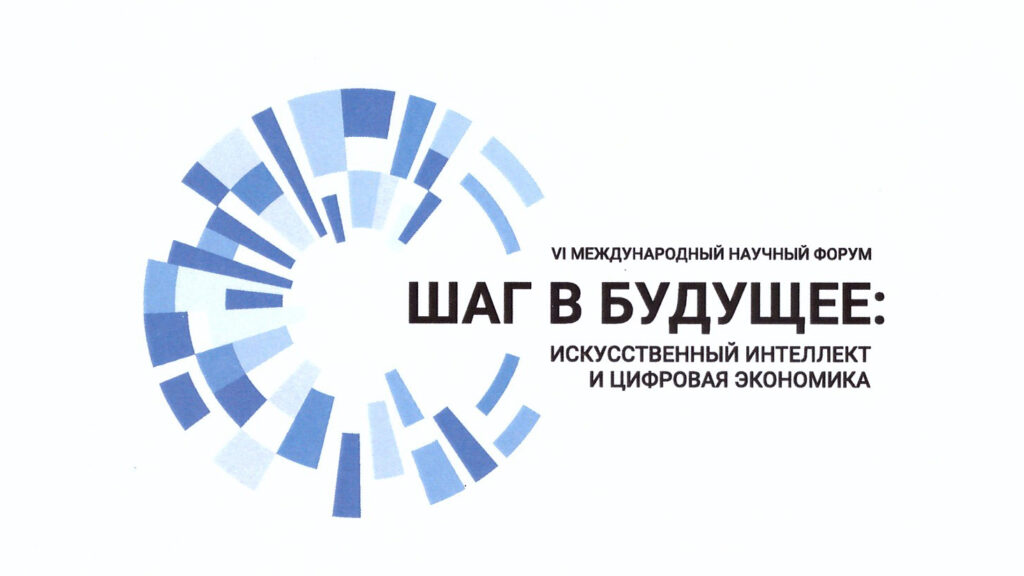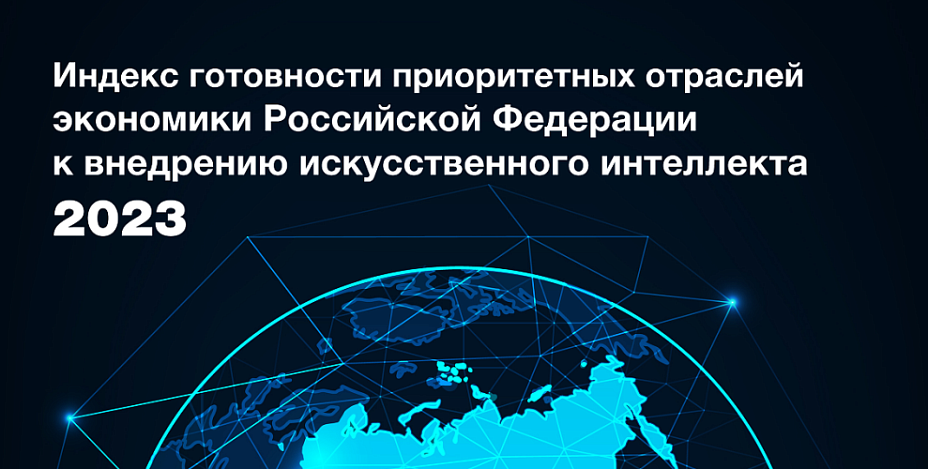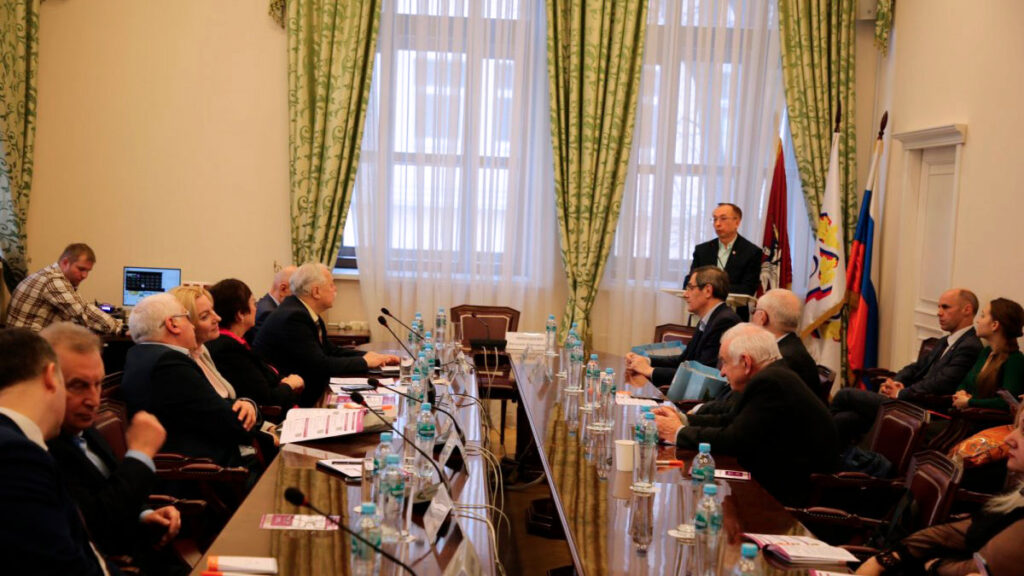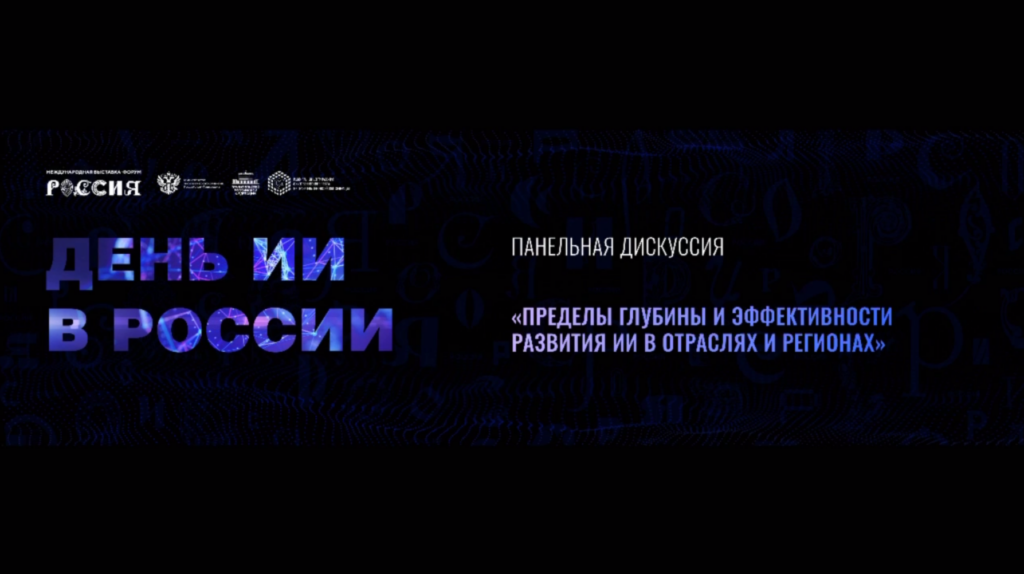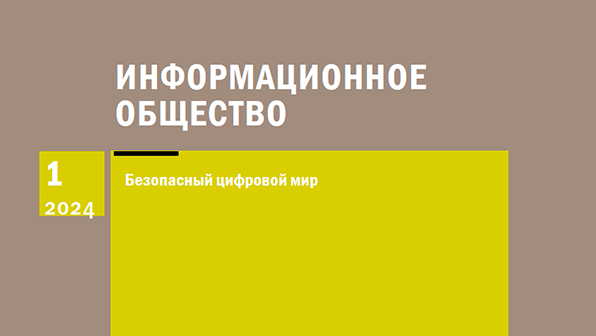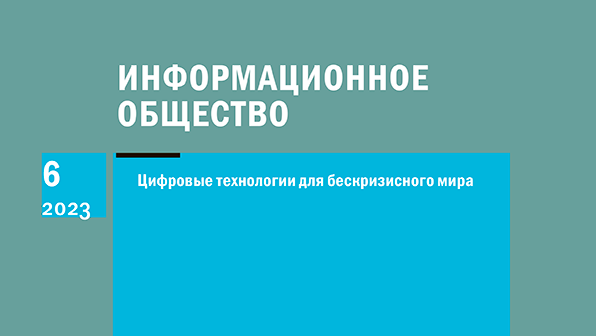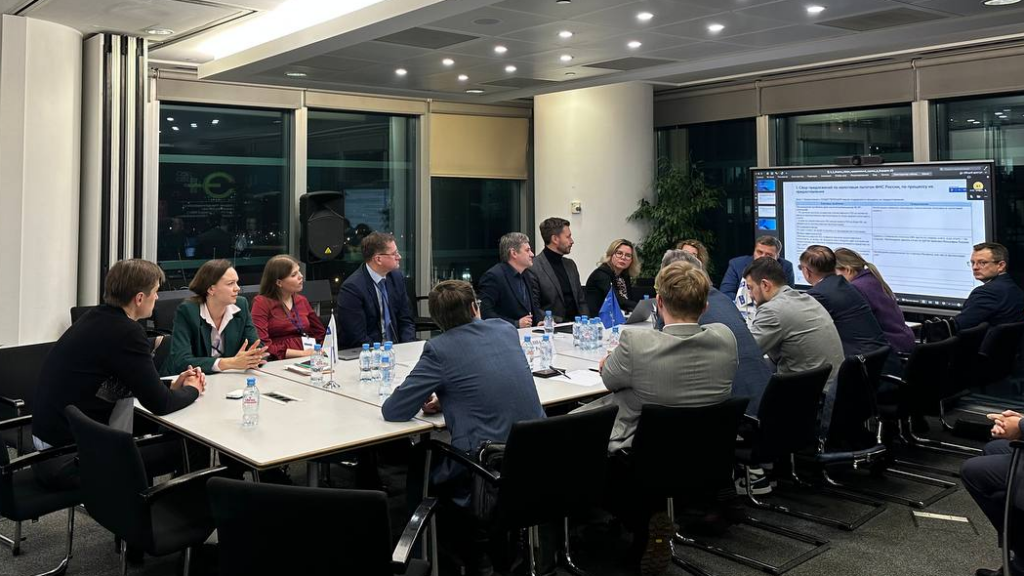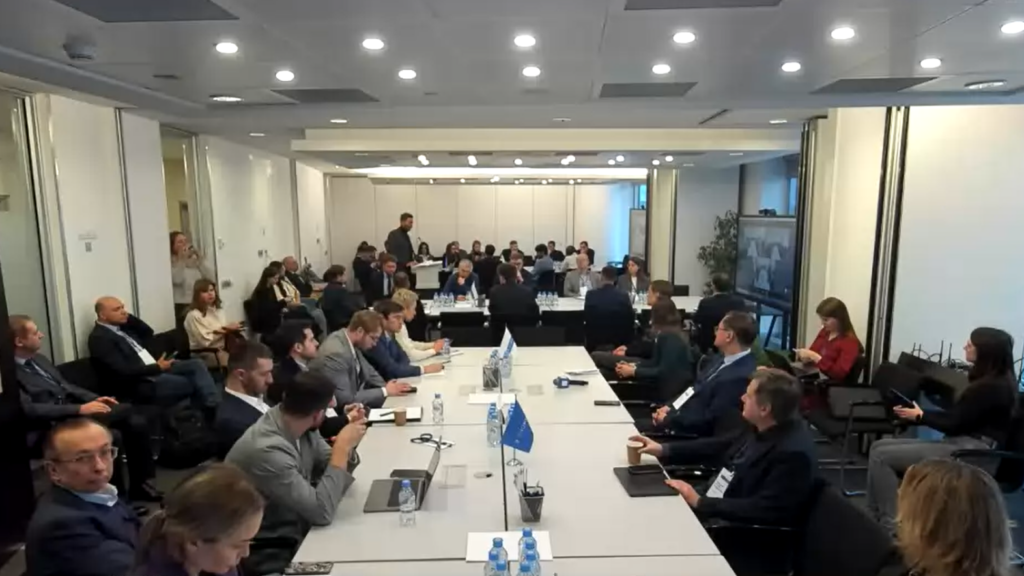On March 15-16 2024, the Plekhanov Russian Economic University hosted the XIII International Scientific and Practical Conference named after Anatoly Ivanovich Kitov “Information technologies and mathematical methods in economics and management” (IT&MM). Its participants – leading scientists, full members of the Russian Academy of Sciences and experts in the field of artificial intelligence – discussed the creation and use of information technologies in management, education and economics.
The IT&MM conferences are dedicated to the memory of the outstanding scientist, the founder of a number of scientific directions in the field of computer science, Anatoly Kitov, who worked at Plekhanov University for 17 years and wrote the country’s first textbook on programming and computers. The project he proposed to Nikita Khrushchev to create a Unified State Network of Computer Centers in the USSR became the prototype of the Internet.
The conference has been held for many years in a row, and once again REU acted as its platform. Traditionally, it raises important issues of the information society, artificial intelligence and their impact on socio-economic development.
The following speakers made their presentations at the plenary session:
1. Igor Sokolov – academician, scientific director of the Federal Research Center “Computer Science and Management” of the Russian Academy of Sciences, dean of the Computer Science Faculty of Lomonosov Moscow State University
Artificial Intelligence and Data Analysis
2. Arutyun Avetisyan – academician, director of ISP RAS
Trusted Artificial Intelligence: Challenges and Opportunities
3. Alexander Gurdus – Doctor of Economics, Candidate of Technical Sciences, chief specialist of the “Computer Science and Management” of the Russian Academy of Sciences,; Alexander Pastukhov – general director of JSC RTO; Andrey Chesnokov – expert
On some features of the digital metaspace of a polycentric world
4. Yuri Hohlov – Candidate of Physical and Mathematical Sciences, full member of the Russian Engineering Academy, Chairman of the Board of Directors of the Institute of the Information Society, Chairman of the Editorial Board of the Information Society journal
Data Standards for Artificial Intelligence: The Artificial Intelligence Standardization Landscape
5. Vladimir Koren’kov – Doctor of Technical Sciences, scientific director of Meshcheryakov Laboratory of Information Technologies, Joint Institute for Nuclear Research (Dubna)
Methods and technologies for data processing in heterogeneous computing environments
6. Anatoly Kozyrev – Doctor of Economics, editor-in-chief of the Digital Economy journal
Generative networks and copyright
7. Irina Ilyina – Doctor of Economics, Director of the Russian Research Institute of Economics, Politics and Law in the Scientific and Technical Sphere
Digital platforms in science management
The conference also featured several thematic sections:
Section 1. Mathematical methods for analyzing economic information and managing socio-economic processes
Section 2. Concepts and technologies of the digital economy
Section 3. Digital education. information and communication technologies in economics and education
Section 4. History of the creation of information technologies and their use in management and economics
Section 5. Engineering of enterprises based on modern information and communication technologies
Section 6. Student scientific initiatives
Based on the results of the conference, it is planned to publish participants’ articles in the collection of scientific papers “IT&MM -2024” and in the collection of student works.
Source: official website of the Plekhanov Russian Economic University
